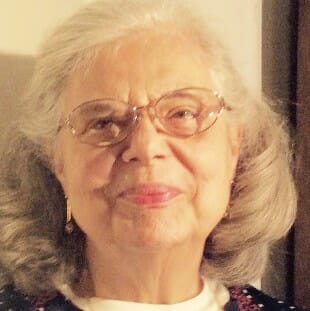Spotlight on Christina Fleetwood

Christina, please tell us a bit about yourself.
Well, I am now 68 years old. I was born and since 1980 have returned to live back in Stockholm, Sweden. I had an 8 year long experience living in the USA during the 70’s. While in Portland, Oregon, I met a wonderful life partner. David, who is younger than I am, has been an opera singer and changed careers, switching to social work, and is now doing research and development work on collaboration within the field of social psychiatry. We have a lot in common and share many ideas and principles, including the concept of Recovery. Classical music is a large part of both of our lives, and we both also enjoy feel-good movies and BBC productions.
Throughout my life, I have been interested in society and the way it works. During the 1960s I studied social and political science, eventually focusing on disability issues. I joined a Masters Program in San Francisco on visual impairment. This was during the time of the Independent Living Movement. E. Goffman’s book Stigma was assigned as course reading!
Since this was the 70s, it was also a time when people were freely exploring lots of Personal Development issues and activities, and folks were talking openly about racism, sexism and other kinds of bias. I taught classes at the Portland State University on “Able-bodyism”.
In the mid 1980s, I was suddenly diagnosed with epilepsy. Having worked professionally with rehabilitation really helped me, and during the past 15 years I have not experienced seizures but still take medication. I felt it was important to become involved in the Disability Movement and eventually returned to studying – this time for a Masters in Public Health. This was my way of confirming my brain still functioned! I also started conducting research, working towards a PhD with focus on Collaboration between Disability/User Organisations and Health Policy. I became somewhat side-tracked as I was also teaching at Stockholm University while simultaneously taking on the chairmanship of the Overweight Association. I have been involved in getting a grant for a 3-year project developing courses on “Health Independent of Size”. This is now on year 2, the first courses have begun, and I have transferred responsibility to the “younger and eager” so that I can relax and focus on issues around obesity and Weight Stigma for the public and health professionals. Hopefully I will also find time for my own research.
Please describe your personal experience of obesity.
Being a child during the post-war period, there was a un-discussed rule that you finish up everything on your plate, whether you had asked for what was there or not. The impact of
this old rule is still with me and causes trouble! At the age of 6 I started ballet lessons and the instructor contacted my mother to inform her I needed to lose weight. As I came from a family with solid genetic make-up for obesity, this was the start of my career as a fat person! I was 8 years old when I went in for my first hospital visit, ostensibly to check-up the status of my thyroid function. This was just the beginning; I spent about one full year between the age of 8 and 22 in hospital, taking on various weight loss programs. One of these (research) programs included a 0 calorie diet which only permitted water and synthetic vitamins and minerals. The first time was intended to be 40 days but they stopped me for cheating after 37 days. I wasn’t cheating, I was just no longer able to lose weight.
My body had obviously adjusted as to crisis situation and adjusted my metabolism – a condition recent research has been able to prove. A few years later, a car accident left me sitting in wheelchair with a severely broken leg. As I didn’t think this “diet” had caused any damage – I asked for another chance at the “starvation diet”. This time I went without nutrition for 61 days. The same thing happened, I stopped losing weight but anyway – came out thinner and with some lovely woollen blankets that I had made during therapy. Looking back on this hospital period in my life I hear a whisper “Go to jail, go directly to jail, do not pass go!”
The 60s were quite harsh on individuals with any kind of eating disorder. One day I was sent down for “a photo session” without neither information nor consent. Three of us were included and were instructed to strip: “Now, take off all your clothes, we will take some pictures”. What for??? We had no idea! There we were, the three of us, teenagers, two with large bodies and one with almost nothing left on her body. We were not even allowed to cover our faces!
My school years were, of course, affected by my size. I was discounted, they let me be gone to hospital for 6 or more weeks during school year. The worst was the gym classes. Our school was training ground for gym teachers, and they were uncomfortable with a fat child who didn’t do well in sports. Dancing has always been great – except when the teacher- trainees giggled embarrassedly about me in a group playing Butterflies. There was an option for the girls who weren’t up to training that week to take a walk with Bobbie, the gym poodle. So I was always directed to Bobbie and always had company. But …. at the end of the term I was sent to the school doctor who explained to me it was “psychologically dangerous for a fat child to take part in gym class”. Because of this I was “liberated” from attending gym classes for the rest of my school-life. The alternatives were coffee, a muffin or a cigarette instead of a pleasant walk with Bobby …. but gym teachers were spared from being confronted with a fat girl who liked to dance.
Over the years I have gained and lost a considerable amount of weight. Ironically, people were not always positive when I got thinner, and some were positively threatened by the fact I had changed identity; people around me were uncomfortable with this new person. And I didn’t recognize myself. It isn´t only your body that becomes thinner, your brain has to get adjusted to that too. 20 years ago I lost about 40% of my weight. One day I met a person who refused to recognise me, she went behind my back to see if she could find the rest of me, but no…. it wasn´t there! Another time I met one of the rehab staff, she looked at me and said “I didn’t think you were going to keep yourself like that!” Well, she was right – I gained back a fourth of what I had lost but have since found what might be my own “setpoint” which I recognise and feel comfortable with.
Reflection
Weight is not a good indicator of health! Research shows that stress is the best indicator of un-health. Shame is a confounder between stigma and stress. Thus stigma leads to shame, leads to stress, leads to diabetes, to heart and lung problems, to cancer etc. It doesn’t matter if shame is based on being poor, fat or disabled, these are all conditions for which the individual is often is blamed. Based on this by now well established research, it seems more appropriate to stop on-going weight stigma, removing shame and encouraging healthy self confidence, rather than focusing so much attention on weight loss which is very ineffective, with a failure rate of about 90%. And so called “yo-yo dieting” can create a situation of weight fluctuation more dangerous than keeping the weight and focusing on other ways to gain health.
